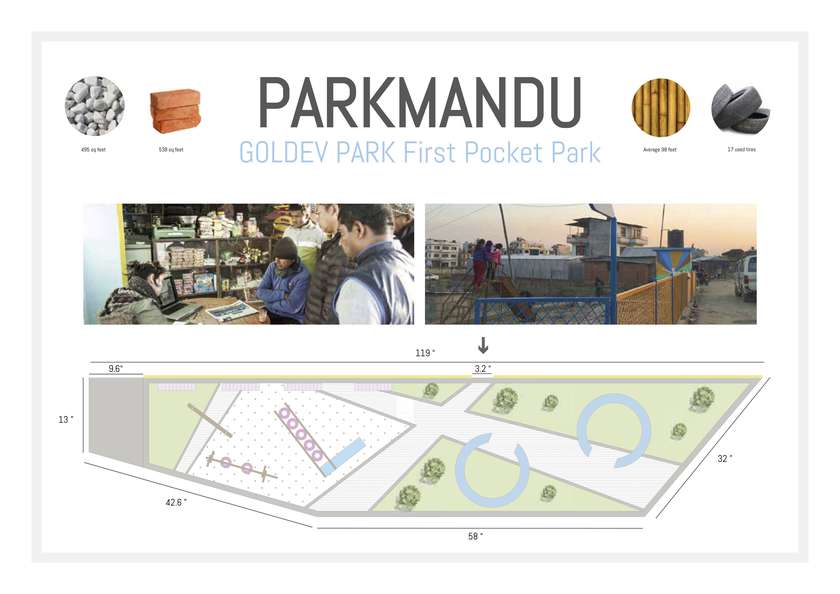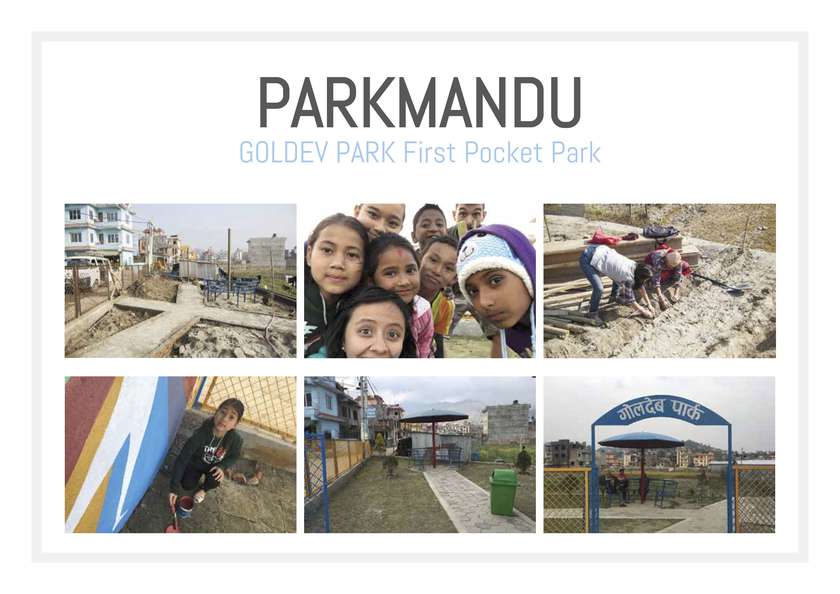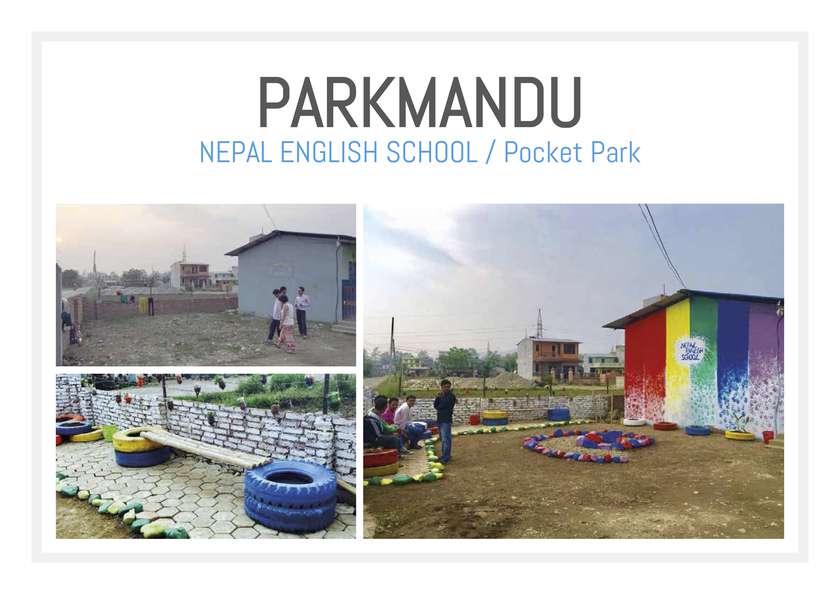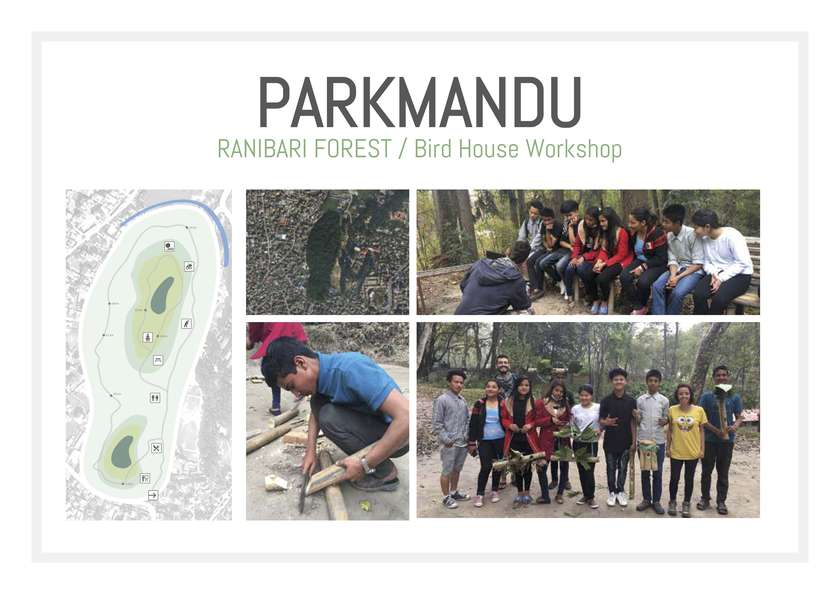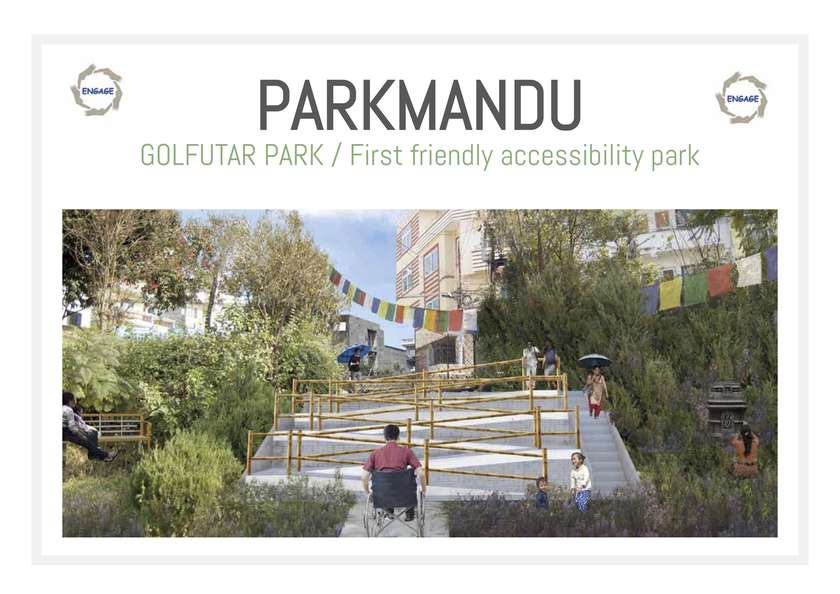Idea by
Walter Morselli and Marcela Torres
Mhuysqa_Parkmandu
Call for ideas 2019
Parkmandu
Parkmandu
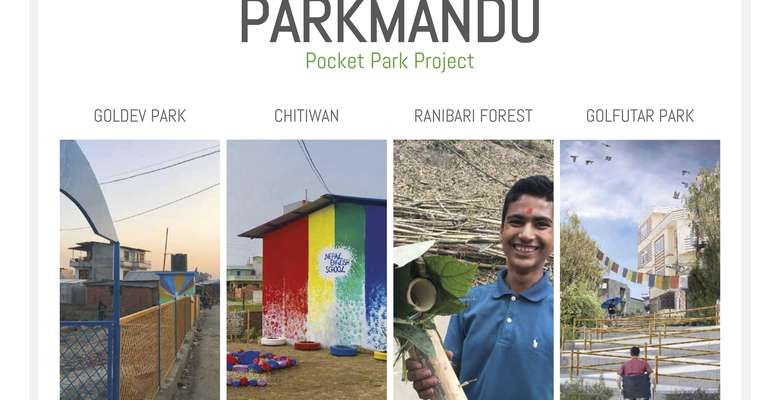
- Systemic changes
Parkmandu was a community based initiative for the creation and revitalisation of green spaces across Nepal.
Parkmandu became a reciprocal learning process in which professionals transformed into facilitators and communities into the key stakeholders of the design and construction processes. The project intended to be economical and ecological sustainable and moreover to start raising social questions as the importance of accessibility and gender equality in the participation and implementation stages.
The impact of the project was broader than expected, as both communities and facilitators needed to get out of the confort zone to completely understand the importance of cooperation and non hierarchical relations for the success of the ideas. The most challenging part of Parkmandu was not the technical o bureaucratic issues, but to recognise how architecture and urban design was confronting social misconceptions while allowing the users to transform the space where they live.
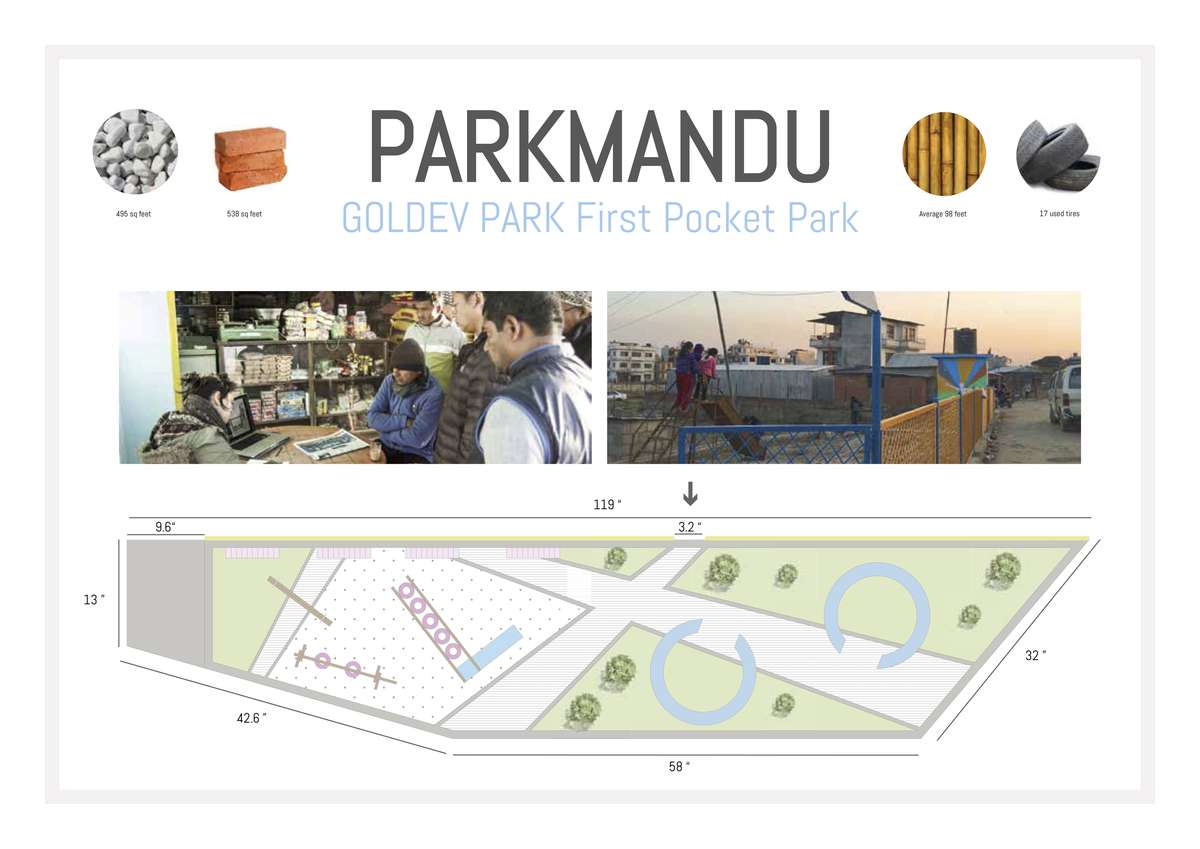
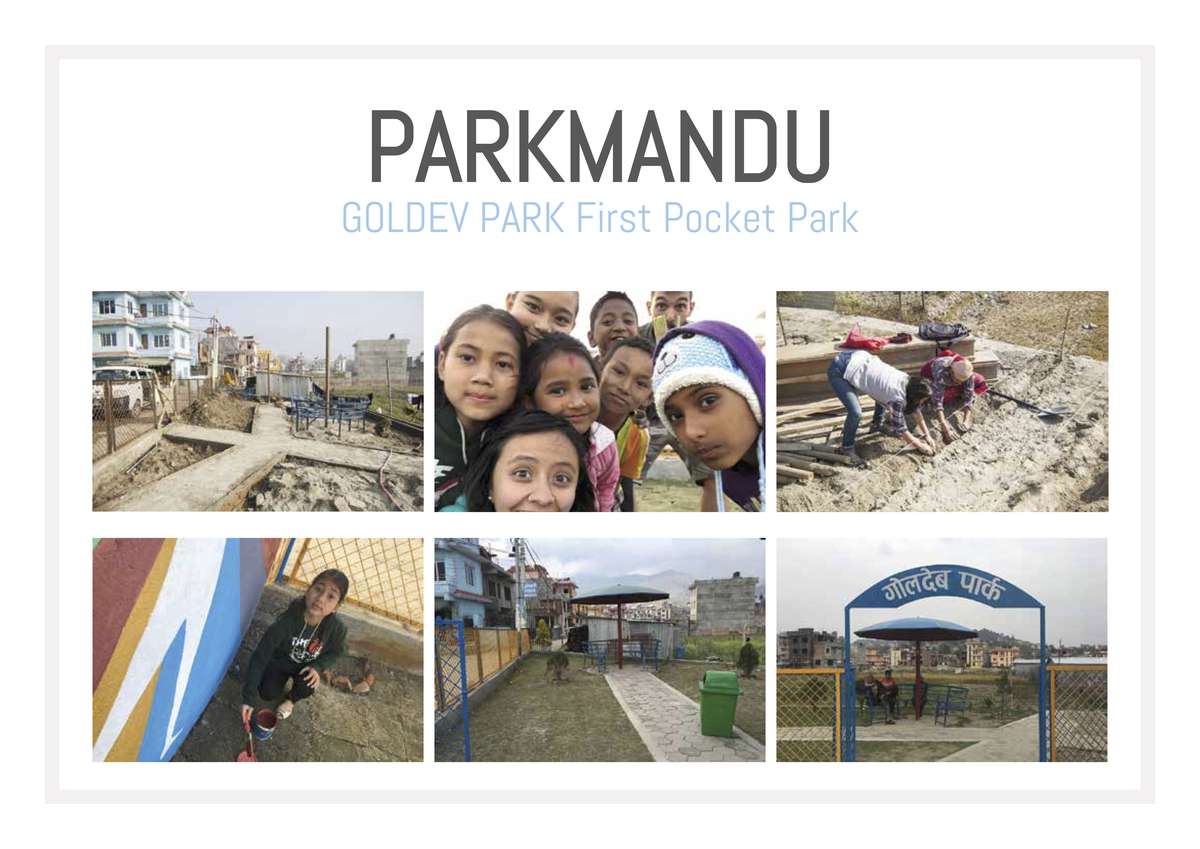
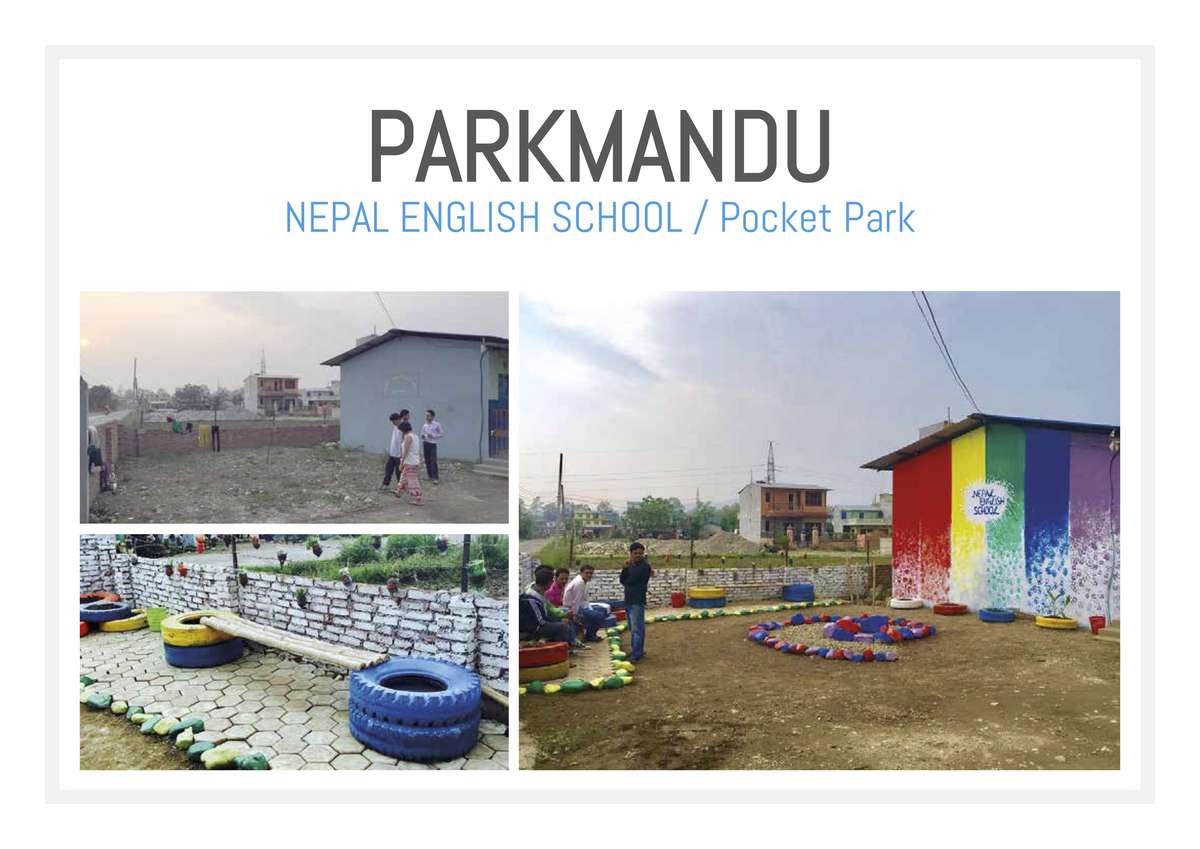
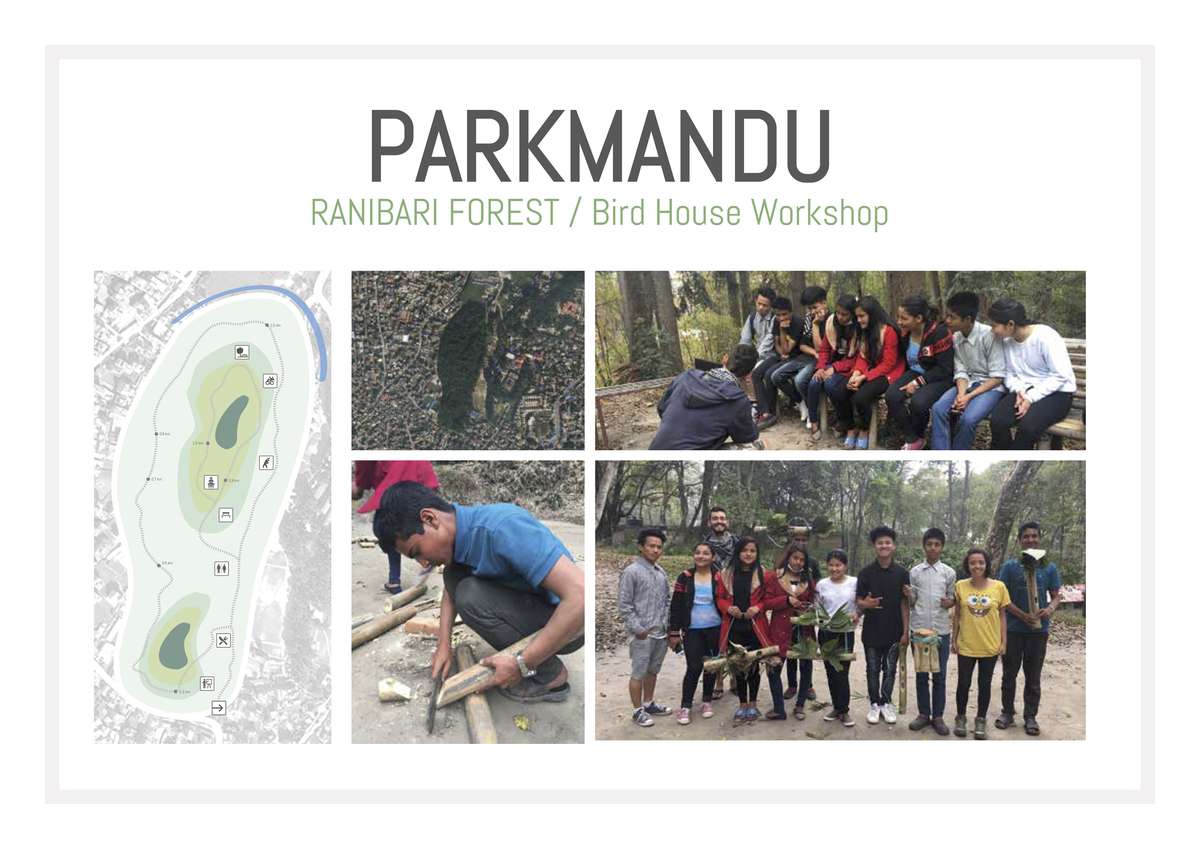
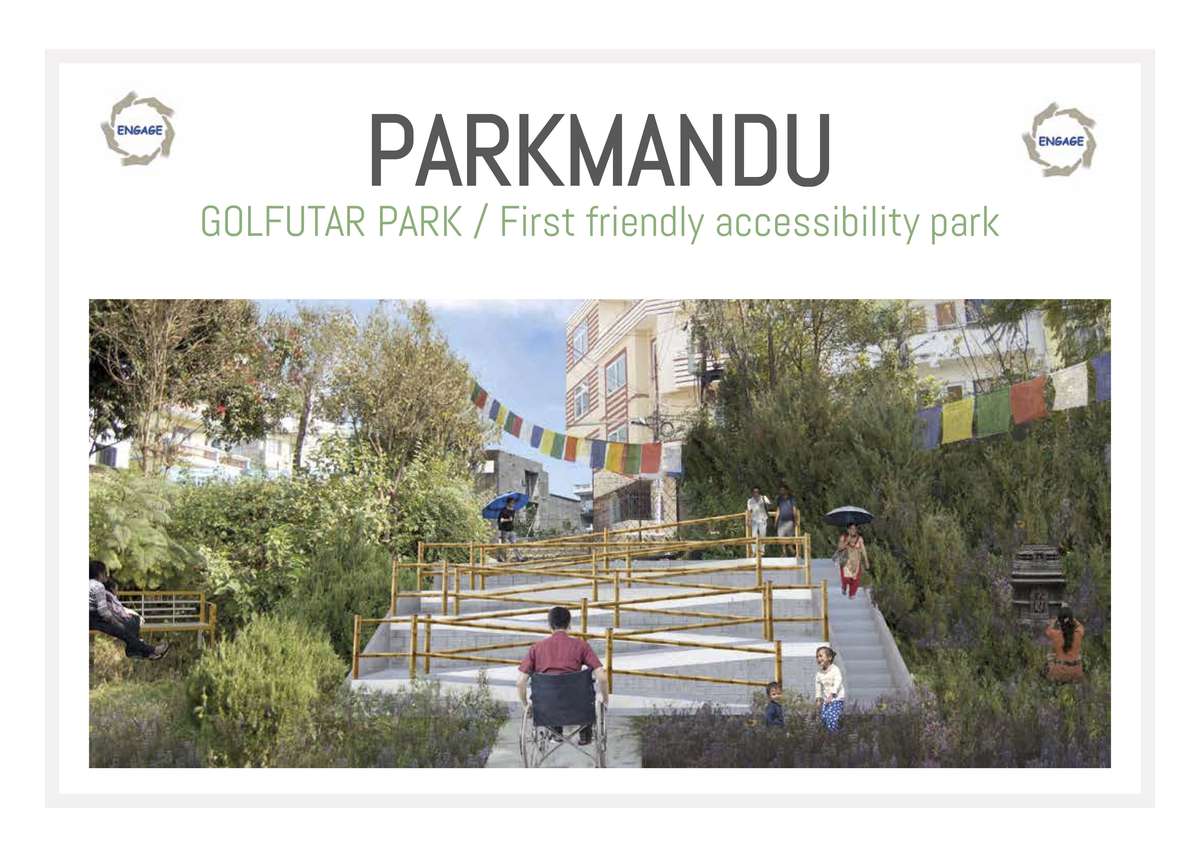
Parkmandu
Parkmandu

- Systemic changes
Parkmandu was a community based initiative for the creation and revitalisation of green spaces across Nepal.
Parkmandu became a reciprocal learning process in which professionals transformed into facilitators and communities into the key stakeholders of the design and construction processes. The project intended to be economical and ecological sustainable and moreover to start raising social questions as the importance of accessibility and gender equality in the participation and implementation stages.
The impact of the project was broader than expected, as both communities and facilitators needed to get out of the confort zone to completely understand the importance of cooperation and non hierarchical relations for the success of the ideas. The most challenging part of Parkmandu was not the technical o bureaucratic issues, but to recognise how architecture and urban design was confronting social misconceptions while allowing the users to transform the space where they live.
